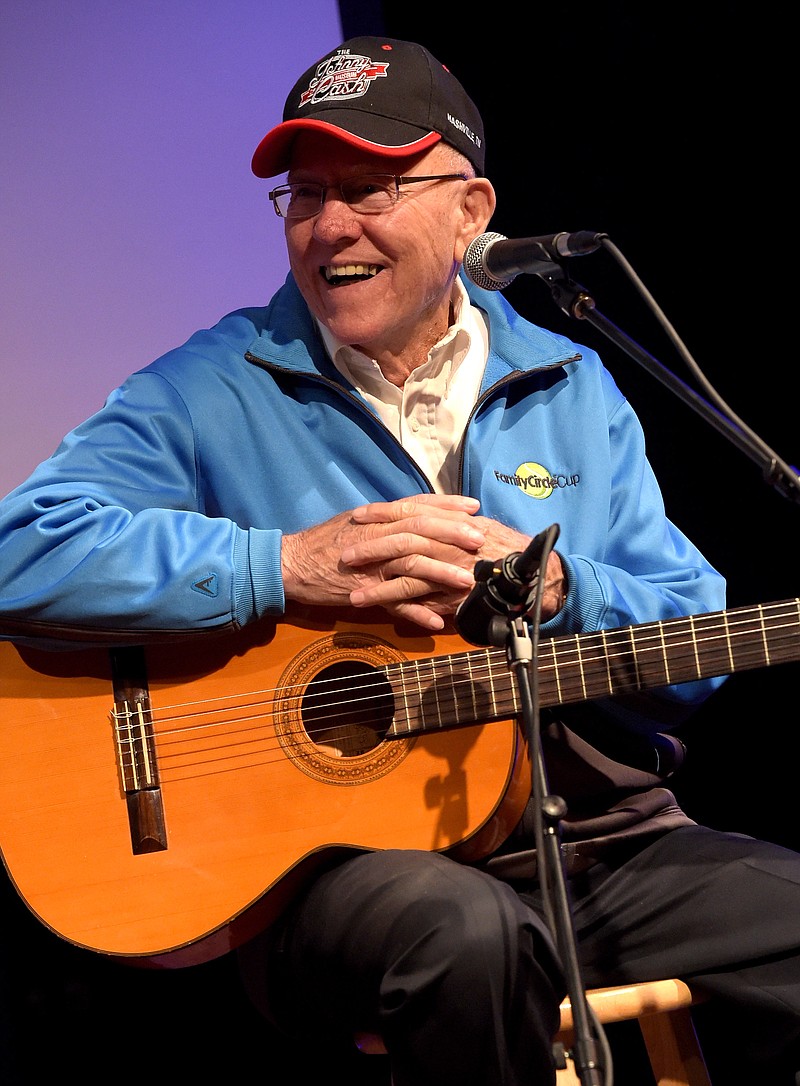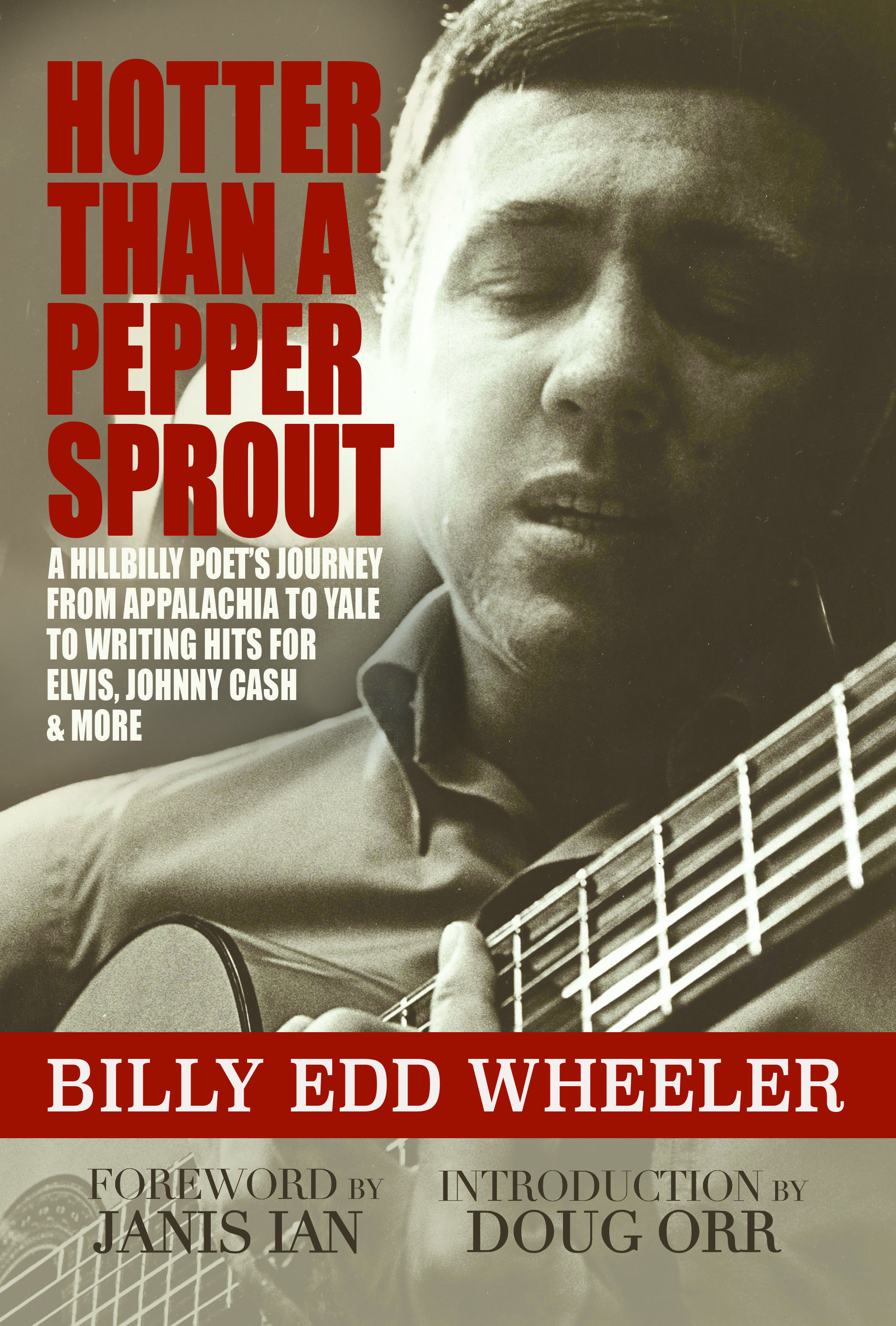"HOTTER THAN A PEPPER SPROUT: A HILLBILLY POET'S JOURNEY FROM APPALACHIA TO YALE TO WRITING HITS FOR ELVIS, JOHNNY CASH & MORE," by Billy Edd Wheeler (BMG, 250 pages, $25)
Songwriter, poet, playwright and musician Billy Edd Wheeler opens his new memoir, "Hotter Than a Pepper Sprout: A Hillbilly Poet's Journey From Appalachia to Yale to Writing Hits for Elvis, Johnny Cash & More," by recalling Johnny Cash's 1970 White House performance for Richard M. Nixon.
Wheeler's presence that evening had no connection to his own political stance - the invitation was the result of Cash's recording of "Jackson," a song Wheeler wrote. The record was a No. 2 country hit and won the 1968 Grammy for Best Country Duet for Cash and his wife, June Carter Cash.
After the White House performance, Wheeler was approached by Ruth Graham, the wife of evangelist Billy Graham, who asked about his inspiration for the humorous and entertaining song of spousal conflict. She was clearly surprised by his answer: Edward Albee's play of matrimonial spite, "Who's Afraid of Virginia Woolf?"
"Mrs. Graham was incredulous," Wheeler writes. "The creative process never ceases to amaze me," she told the songwriter.
Mrs. Graham's statement could also be said of Wheeler's memoir. Born in 1932 in Boone County, West Virginia, to an unwed teenager, Wheeler was raised primarily by his grandmother. He chronicles the joys and challenges of his childhood - eventually leaving his grandparents' house to live with his mother and stepfather, being drawn to music and songwriting from a young age and discovering a new world beyond his home by securing a partial scholarship to a private boarding school.
Knowing Wheeler's eventual destiny as a successful country songwriter, a reader familiar with similar memoirs might expect the standard-issue Music City success tale: loving the Grand Ole Opry, moving to Nashville, hitting the big time, etc. Instead, Wheeler's story is filled with unexpected twists and turns - winning a full scholarship to Yale, joining in the New York folk-music scene of the early 1960s, apprenticeship under the songwriting team of Jerry Leiber and Mike Stoller, writing popular outdoor historical-musical dramas and nurturing unexpected inspirations that eventually evolved into hits like "The Reverend Mr. Black" (The Kingston Trio), "The Man Who Robbed the Bank at Santa Fe" (Hank Snow), "It's Midnight" (Elvis Presley), "Coward of the County" (Kenny Rogers) and many more.
Wheeler's simple, straightforward prose is particularly engaging, showcasing an eye for vivid details and a gift for description, all focused through a down-home, laconic way of viewing even the tensest situations. In this passage, Wheeler, just 11 years old, narrowly escapes death inside a mountain railway tunnel while running away from his abusive stepfather:
After the train was gone, I rolled up onto the gravel, but stayed down for several minutes, hoping the smoke would clear or rise to the top of the tunnel, allowing me to get up and walk without having to breathe much of it.
When I stood up, the sandwich and apple rolled out of my lunch bag, along with a piece of gravel that had shot into it, causing it to tear. I heard the apple bounce and plunk into the water. But the sandwich, wrapped in waxed paper, landed safely on a crosstie. I picked it up and stuffed it into a front pocket, felt around in the water until I found the apple, and put it in my other pocket, the one containing twenty-five cents. I would eat a good lunch later. First, I had a half-mile of smoky tunnel left to negotiate.
By keeping the focus on his most vivid personal memories and expressing them though a natural, backwoods storyteller's voice, Wheeler invokes classic chroniclers of Appalachian life like Jesse Stuart or Janice Holt Giles, rather than stereotypical music memoirs.
The spice of "Hotter Than a Pepper Sprout" comes from the simple joys and often nonlinear paths of the creative process - whether through the discovery of Robert Frost's poetry or by recognizing the comedic potential buried in a grim and serious drama. The result is a fascinating and beguiling story of an astonishing life.
For more local book coverage, visit Chapter16.org, an online publication of Humanities Tennessee.

